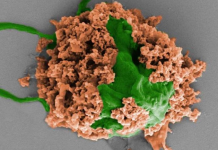Vitamin A is a type of fat-soluble vitamin that is stored in the liver. Normal foods contain two types of vitamin A. The first of these is premade vitamin A. It is also known as retinol and is an active form of vitamin A.
It is found in animal foods such as meat, fish, poultry, whole milk and dairy products. The second type of vitamin A is known as provitamin A and is found in plant-based foods such as fruits and vegetables.
Another name for the second type is carotenoids, which give foods their dark color, that is, pigments. This type can convert to the active form of vitamin A. There are more than 500 known carotenoids.
The most common type of provitamin A is called beta-carotene. Vitamins are generally essential nutrients that are either not produced at all by the body or can be produced in insufficient quantities to prevent adverse health consequences or disease.
For this reason, it is necessary to provide the body with vitamins through proper nutrition and with vitamin supplements only when medically necessary.
Vitamin A is also available as capsules and in products sold as dietary supplements. It is often added to supplements as retinyl acetate or retinyl palmitate (preformed vitamin A), beta-carotene (provitamin A), or a combination of the two.
What Are the Benefits of Vitamin A?
Vitamin A helps to form and maintain healthy teeth, bones, soft tissues, mucous membranes and skin structures. It is also known as retinol because it produces the pigments that give color in the retina of the eye.
Vitamin A provides good vision, especially in low light. It also plays a major role in healthy pregnancy and post-pregnancy breastfeeding.
Beta-carotene-type vitamins A are antioxidants. Antioxidants protect cells from damage caused by substances called free radicals.
It is known that free radicals contribute to some chronic and long-lasting diseases and play a role in aging. Consuming food sources containing beta-carotene may reduce the risk of cancer. However, supplements containing beta-carotene have not been shown to reduce the risk of cancer.
Vitamin A Deficiency
In case of vitamin A deficiency in the body, various eye and vision problems may occur. These problems include reversible night blindness and xerophthalmia, which is irreversible corneal damage. Vitamin A deficiency can also lead to hyperkeratosis, or dry, scaly skin.
What Happens If We Consume The Extra Vitamin A
An excess of Vitamin A can also cause illness. High doses of vitamin A can cause birth defects. Acute vitamin A poisoning usually occurs when an individual ingests several hundred thousand IU, or international units of vitamin A. Chronic vitamin A poisoning can occur in adults who regularly take more than 25,000 IU per day.
Babies and children are more sensitive to vitamin A. They can also become sick after taking smaller doses of vitamin A or products containing vitamin A, such as retinol.
Large amounts of beta-carotene do not usually make individuals sick. However, high amounts of beta-carotene can turn skin color yellow or orange. When beta-carotene consumption decreases, skin color returns to normal.
What Foods Contain Vitamin A?
Preformed Vitamin A comes from animal foods such as trout, feta, liver, king mackerel, cod liver oil, salmon, chicken liver, butter, egg yolk, fatty milk, cheese, cream, kidney, halibut, and fish oil.
Provitamin A is abundant in yellow fruits such as pumpkin, broccoli, carrots, spinach, collard greens, dandelion greens, red peppers, cabbage, parsley, chard, brussels sprouts, sweet potatoes, oranges, and dark green leafy vegetables.
The darker the vegetable or fruit, the more beta-carotene it contains. Vegetable sources of beta-carotene are free of fat and cholesterol. If these sources are eaten together with fat, the absorption of vitamin A obtained from them increases.
The best way to get the body’s daily requirement for other important vitamins, including vitamin A, is to eat a wide variety of fruits, vegetables, fortified dairy products, legumes such as dried beans, lentils and whole grains.





